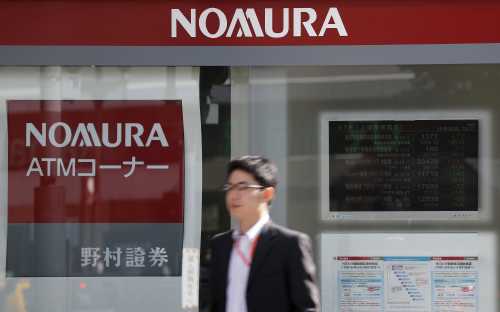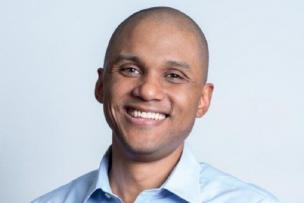Sam Price, who is responsible for recruiting investment banking MBA associates at Nomura, says as much in this exclusive interview with BusinessBecause.
Nomura’s formal MBA hiring track places b-school graduates into all investment banking areas, such as equity sales and research, M&A, IPOs and FICC — fixed income, commodities and currencies. It scouts for talent at INSEAD, IESE, and London business schools. MBAs spend 10 weeks at Nomura’s London office.
MBAs have ditched investment banks in recent years. Grads from the top 10 schools are 40% less likely to choose a career in banking than before the crisis, according to the FT. A constant barrage of scandal — from Libor rate rigging to foreign exchange — has savaged the sector’s reputation. And Nomura and competitors like Goldman Sachs are fighting for talent with Google and Amazon.
Nomura has gone to lengths to make itself more appealing to a millennial generation more concerned with work-life balance than cash and career.
If you want to work in investment banking (probably few of you), Sam’s your man. Below, he runs the rule over what Nomura seeks in an MBA hire.
Why do you value MBAs?
Because they can bring in some experience. The traditional route to the associate level would be through years as an analyst. An MBA is already at the associate level.
Someone external might bring with them sector expertise. You get that outside experience or connections. The MBAs, generally speaking, have some management experience as well in different industries. It makes them flexible. They have that maturity to come in and work with junior analysts.
With the outside experience, it gives the team a bit of a different feel to it. If you’ve got a team of associates who have all been analysts things can be sam-ey or insular. But if you get someone from a different background they can bring a fresh set of ideas.
Which business schools do you work with?
We target IESE Business School, London Business School (LBS), and INSEAD. We’ve secured nearly all the positions we needed to secure this year from those three.
We do try to target other schools. Sometimes it’s because someone from the business [Nomura] is saying, “I went there, let’s try this”.
There is always a worry that MBAs will be eaten alive as new recruits, but if you have other MBAs [at the firm], that feeds into the enthusiasm from potential candidates.
What trends are affecting this?
It does depend on what is going on in the markets. From a more operational level, three years ago we managed to have a really high success rate in securing students and marketing to them because not many other banks were recruiting. And last year was one of the first in a while when a lot more banks have come out [increased recruiting efforts] — Goldman Sachs and Deutsche Bank and Credit Suisse came out quite fiercely.
A boom in M&A will always affect people’s perceptions. If they see a particular bank high on deal volumes that will be attractive. The perception and the awareness [among students] is essentially what they read in the FT and The Economist.
What has Nomura done to make itself appealing to MBAs?
LBS is kind of an extreme example because we target them quite heavily. With IESE and INSEAD it’s a softer touch.
Before the manic MBA recruiting season starts we hold interviews with partner schools a bit sooner, so we can get offers out before the others [other banks], so we are ahead of the curve.
We try to offer a bit more of a one-on-one approach. When you’ve made an offer it’s not a case of hoping for the best and hoping that they accept it. It's facilitating discussions so they can come in and find out more about the team and the projects they will work on.
We are a more nimble, smaller firm. The exposure might be — and I’m not saying definitely — slightly higher than at a different bank where they recruit more MBAs. You have the better opportunity of getting in front of clients earlier on.
There is also a gym on site, a dry cleaners, and a roof terrace — niceties we try to sell.
What skills and background does Nomura look for in job applicants?
There’s not much difference between us and any other bank. An external perspective, from maybe a consultancy, [is attractive]. Specific industry expertise — for example we’ve had engineers work in our power team; management consultants come into the healthcare team — can often help.
A keenness to want to work here as opposed to just investment banking generally is something we look for. The people relationships side is also important — being a smaller company we notice where people do and don’t fit in more easily.
What is your personal advice for job applicants?
In terms of the CV-sift phase, a cover letter can be important in selling why you want to work at Nomura. What we want you to do is label why that’s important for you. Not just what you read on our website.
In the interviews, our case studies are on valuations a lot. Knowing how to run a discounted cash flow or knowing all your different valuation methods and talking logically through them is important.
And the competency-based interview is selling your experience, essentially.
There’s no doubt fewer MBAs are going into investment banks. Are you competing with tech companies like Google and Amazon?
Yes. That is something I can definitely agree with. Pre-financial crisis you might be competing just with other banks and you might get the news someone declined an offer to go and work for a different investment bank. Now we see people going to consultancies and small start-up firms. It’s definitely more competitive, among a wider array of companies.
Some of the students might be moving slowly towards the millennial-type profile in terms of working at a “cool start-up” as opposed to a big corporate firm.
Have the investment banking scandals, Libor and foreign exchange for example, damaged the industry’s reputation to potential job applicants?
Yeah. I don’t think you can get away from that. With big corporates more widely, such as the oil companies and Volkswagen, there is a picture that emerges [and turns into] the “bank bashing” that’s reported in the FT. With the negative press banks and other organizations get, it impacts students’ thoughts and opinions.
Work-life balance has been a big concern for the millennial generation. How has Nomura addressed this concern?
What I hear from colleagues at our investment bank divisions is that compared with other banks, our work-life balance is a little better. We are seen as one of the better banks on work-life balance.
There is no getting away from the fact that you’ll probably be doing six or five-and–a-half days a week. But that work-life balance is becoming a bit more critical. The company is trying to introduce ways to deal with that.
What’s the biggest misconception MBAs have about working in investment banks?
Maybe there’s a misconception that MBAs will get eaten alive; there’s no protection, you have to hit the ground running, straight away. Whereas actually you’re given all the training you need in the first week. And you meet the team on an informal basis.
The fact that we’re a smaller bank means there is that element of cohesiveness and friendliness that you don’t get at other banks. You’ve got other MBAs around you to support you on a more informal basis.
RECAPTHA :
24
96
12
77










